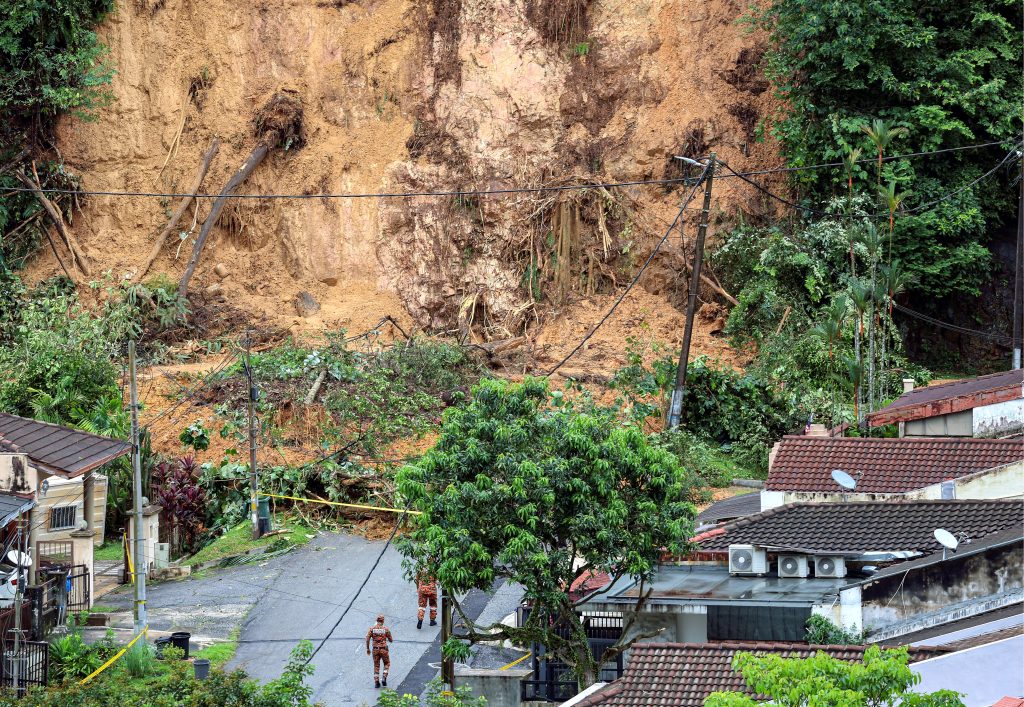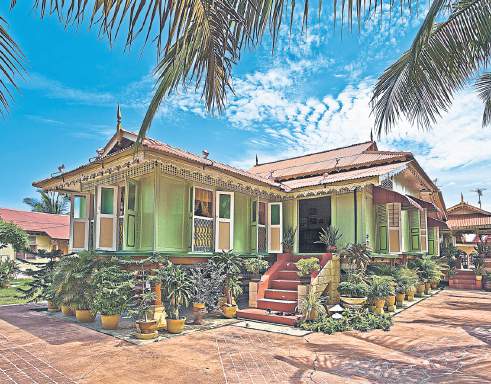
Many companies aim to appear ‘green’, but insincerity risks losing both consumer trust and young talent
by AKMAR ANNUAR
GREEN is becoming a fashionable look in Malaysia in recent years.
Corporations are launching “eco-friendly” campaigns, developers are advertising “sustainable living”, and government-linked companies (GLCs) frequently cite environmental, social and governance (ESG) commitments in glossy reports.
However, according to Natural Resources and Environmental Sustainability Minister Nik Nazmi Nik Ahmad, much of it is smoke and mirrors.
“Greenwashing is real. You poke the façade, and sometimes, there is nothing behind it,” he told The Malaysian Reserve (TMR).
In an interview following the release of his book Saving the Planet: Climate and Environmental Lessons from Malaysia and Beyond, he spoke candidly about the country’s climate policies, corporate accountability and the urgent need to align words with action.
“Everyone wants to be seen as ‘green’ now but we need to measure sincerity. It becomes a a problem if it is just a marketing gimmick. “And it is not just about losing customers — companies could lose talent, too.
The younger generation is watching,” he said. Nik Nazmi warned that performative sustainability is failing the country and its people.
At the heart of his concern is what he calls Malaysia’s paradox: A country rich in biodiversity but also reliant on emissions-heavy industries, such as palm oil, and oil and gas (O&G), to fuel its development.
The challenge, he said, is not choosing between development and sustainability: Instead, it is in making sure one does not undermine the other.
Nik Nazmi said as a middle-income country, Malaysians need homes, jobs and food. “We cannot just shut things down overnight like the developed world wants us to, but we also cannot afford to delay action,” he said.

Climate change does not win you elections here. It is not a headline issue like cost of living. But the irony is, these issues are connected. Environmental degradation affects water supply, food security and public health. It is all part of the same ecosystem. — Nik Nazmi Nik Ahmad
Climate Policy in Motion
Nik Nazmi, who has helmed Malaysia’s environment portfolio since late 2022, said the government is making structural changes to enforce genuine climate action.
Key among them is the upcoming Climate Change Act, scheduled for tabling this year. The law is expected to set out binding commitments for emissions reduction, including mechanisms for large-scale polluters to phase out harmful practices or pay penalties.
The government is also introducing a national adaptation plan next year to improve Malaysia’s resilience — especially in the face of rising sea levels, extreme weather and biodiversity loss.
Last year, the Energy Efficiency and Conservation Act was passed in the Parliament, targeting the country’s largest energy consumers and mandating efficiency standards that are expected to reduce overall carbon emissions.
These efforts are part of the country’s commitment to achieve net-zero emissions by 2050, although Nik Nazmi admitted that getting there will not be straightforward.
In Saving the Planet, Nik Nazmi acknowledges the difficult road ahead, writing that Malaysia’s geographic and economic identity places it in a precarious position.
“Malaysia is tropical, middle-income and a megadiverse. That makes us uniquely positioned — and uniquely vulnerable,” he said.
With over 4,600km of coastline, the country is already feeling the brunt of the triple planetary crisis — climate change, pollution and biodiversity loss. Annual floods, deadly landslides, extreme heat events and worsening haze are not future risks, but current realities.
“Floods are happening more frequently. Heatwaves are getting worse. Human-wildlife conflict is on the rise. You cannot say this is distant anymore, it is here.
And yet, he added, the country’s political landscape is still catching up.
“Climate change does not win you elections here. It is not a headline issue like cost of living. But the irony is, these issues are connected. Environmental degradation affects water supply, food security and public health. It is all part of the same ecosystem,” he said.

Natural disaster such as deadly landslides are not future risks, but current realities (pic: MEDIA MULIA)
Holding Polluters Accountable
While Malaysia has signed onto various global climate pacts, enforcement has long been a weak link. Nik Nazmi admitted as much, but shared that his ministry has made progress.
“We have taken illegal water polluters to court and we have also amended the Environmental Quality Act to increase maximum penalties — now up to RM10 million,” he said, but added that going after small factories alone is not enough.
Big corporations must also feel the weight of their actions and Malaysia must have the tools to act — not just warnings and fines, but real regulatory frameworks.
This also includes ensuring that sustainability disclosures are more than just green-tinted public relations.
“Too often, companies claim they are carbon neutral because they bought offsets. But where is the data? Where is the commitment to reducing emissions at the source?” he asked.
Part of the challenge, Nik Nazmi argued, is overcoming the global North-South divide in climate diplomacy.
In his book, he criticises the double standards that place disproportionate burdens on developing countries like Malaysia.
“We have only been extracting O&G for 70 years. Meanwhile, countries like the US and the UK have been polluted for over a century. You cannot expect us to stop first,” he said.
The same logic applies to Malaysia’s palm oil sector, which has long been in the crosshairs of environmental activists.
“Yes, there have been deforestation concerns, but palm oil remains the most efficient vegetable oil in terms of yield. Replacing it with soy or rapeseed will not necessarily help. The key is sustainable certification and regulation — not blanket bans,” he added.
On the global stage, Malaysia continues to push for climate justice — the idea that historical polluters should finance and support green transitions in the Global South.
This includes engaging with major carbon emitters that have walked away from multilateral commitments.
“We will engage the US regardless of who is in the White House. It has a historical responsibility to lead, not retreat,” Nik Nazmi said.

According to Nik Nazmi, our ancestors built stilt houses not just as traditions but as adaptations (source: visitmelaka.com.my)
A Book Between the Noise
Amid the policy talk and public duties, Nik Nazmi’s decision to publish Saving the Planet — part memoir, part policy reflection — might seem unusual.
But for him, it was a conscious move to bridge the gap between public understanding and high-level policymaking.
“It is not a textbook, it is written for the general reader. If we want action, we need awareness, and books are one way to reach people outside press conferences and policy briefings,” he said.
In one section, he writes candidly about not being an environmental expert when he first took office. Instead, he leaned on conversations with scientists, civil society groups and communities on the ground.
Writing the book was part of his learning process which helped him understand what is at stake.
Nik Nazmi also dedicated a chapter to religion and cultural heritage, arguing that sustainability is not a foreign concept but deeply embedded in Malaysia’s civilizational values.
“Islam, like many faiths, teaches stewardship. Our ancestors built stilt houses and wore breathable batik for a reason. These are not just traditions — they are adaptations,” he said.
What’s Next?
Despite the legislative progress, Nik Nazmi knows that laws alone will not fix everything. What’s needed, he said, is a cultural shift: In business, government and public consciousness.
“It cannot just be about slogans. That era is over. We need to be honest with ourselves — are we serious about change or are we just painting everything green?” he said.
As Malaysia moves closer to becoming a high-income nation, Nik Nazmi believes the country has a unique opportunity to lead — not by copying Western models, but by offering one rooted in tropical resilience, social justice and sincerity.
“We will not get everything right but we need to mean what we say, because the planet is watching, and so are our children,” he said.
- This article first appeared in The Malaysian Reserve weekly print edition
The post Nik Nazmi: Malaysia’s green facade risks collapse without climate sincerity appeared first on The Malaysian Reserve.
